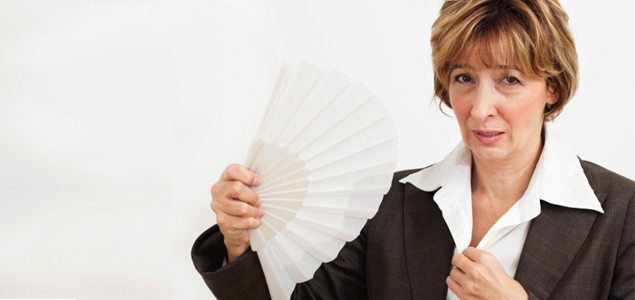Humans are the only species where females cannot reproduce throughout their lives.
This fact has had scientists puzzled for many years but now it seems they may finally have an answer for why women experience menopause – men.
Evolutionary geneticists claim it was men’s tendency to choose younger mates that made fertility pointless for older women – a phenomenon which eventually led to menopause.
The study, published in PLOS Computational Biology, suggests the ‘great change’ was an evolved response to this ‘preferential’ trend in mating.
Previous theories regarding menopause have suggested that women lose their fertility at an age where they might not live to see their child grow. A biological failsafe they nicknamed the “grandmother effect”.
According to this theory, menopause thus evolved as a way of blocking older women from continuing to be reproductive.
But, this new theory suggests the opposite was the cause. In fact, they argue, it was a lack of reproduction that gave way to menopause.
The Canadian research team, from McMaster Univeristy, used computer modelling to come to their ‘preferential mating’ conclusion. This, they claim was evolutionary answer to men of all ages selecting younger women as their partners.
“There is evidence in human history; there was always a preference for younger women,” Professor Rama Singh, the study’s lead author told reporters.
This meant there was no purpose for older women to continue to be fertile, especially when the odds of being chosen as a mate were stacked against them.
But this explains menopause in the context of human development thousands of years ago.
Professor Singh believes that nowadays a longer lifespan, which often leads to later childbirth, could alter the timing of menopause for generations to come.
“The social system is changing. There are women who are starting families later, because of education or a career,” Professor Singh argued.
This trend could see women experience ‘the change’ much later on in life, with that genetic coding eventually passing on to their daughters and ‘the long-term possibility of menopausal age being delayed’.
But some critics argue the study and its researchers may have it all the wrong way round.
They argue that the ‘preferential mating’ didn’t evolve because of a desire for younger female partners but out of a necessity for the most fertile partner – with older females less desirable because they are less fertile.
“I think it makes more sense to see the human male preference for younger females largely as an evolved response to the menopause, and to assume that ancestral males would have been wise to mate with any females that could produce offspring,” Dr Maxwell Burton-Chellew, an evolutionary biologist from the University of Oxford told reporters.
“Evolutionarily-speaking, older females faced an interesting ‘choice’: have a child that may not reach adulthood before your own death, or stop reproducing and instead focus on helping your younger relatives reproduce,” he added.







